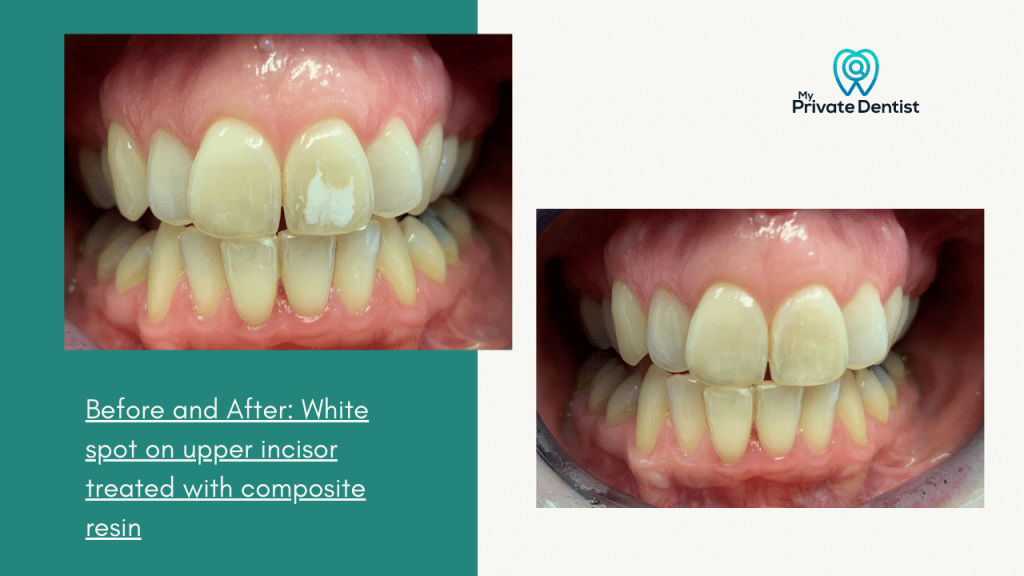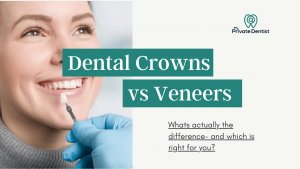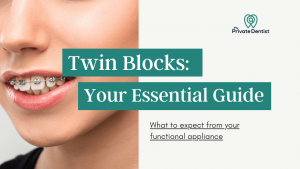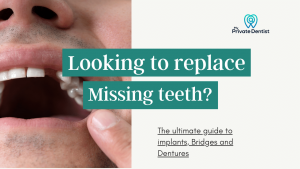You may have white spots on your teeth due to loss of minerals in your surface enamel. This can be caused by:
- Problems with Enamel Formation before the tooth erupted
- Childhood illness, diet or trauma
- Not brushing well enough
- Having too many acidic drinks
There are many different treatments available to help treat white spots on teeth, including Microabrasion, Tooth whitening, Composite fillings and Veneers.
As a dentist, I get quite a few patients coming in asking me if anything can be done about white spots on teeth. Mostly their concerns are cosmetic, as they find that they fixate on these when brushing their teeth or in photos.
Below I have summarised the main reasons why people have white spots on their teeth, and the treatments that are available help remove them. I have also included some preventative advice to stop the white spots forming in the first place!
Table of Contents
What causes white spots on teeth?
White spots on teeth can have various causes. They are all to do with the mineral content of your enamel.
Understanding the underlying cause can help determine the best course of action for treating the spots.
Demineralisation: If teeth are not cleaned properly, the enamel structure can soften and start to show as white spots. This is more common on back teeth and is an early sign of the tooth starting to decay.
Following Orthodontic treatment: If braces are worn and good oral hygiene is not maintained, plaque builds up around the brackets and can damage the enamel. These are then more prominent once the brace is removed. White spots that are square in shape may be a result of previous orthodontic treatment.
Trauma (Turner Tooth): If a baby tooth gets decayed or bumped, the resulting infection can affect the crown of the adult tooth that replaces it. This can result in a single large white mark on the front surface of the upper or lower incisors.
Fluorosis: Fluoride is beneficial for healthy teeth, but if too much is ingested while your teeth are forming, this can lead to speckled white spots on teeth [1].
Some parts of the world have a higher concentration of fluoride in drinking water, which can lead to fluorosis. Swallowing toothpaste following brushing rather than spitting it out, can also lead to white spots on the teeth.
Enamel Hypoplasia: This is a developmental defect that leads to thin or defective enamel, and can affect baby or adult teeth. It is usually due to illness, or nutritional deficiencies when young [2]. More severe hypoplasia can have a brownish colour, become cavitated, and require fillings or crowns.
Poor Diet: A diet high in acidic food and drinks, can cause demineralisation of enamel and lead to white spots on the teeth.
Dry Mouth: If your mouth is dry, white spots on teeth may appear more prominent. For example, if you sleep with your mouth open you may notice them more first thing in the morning.
How do you treat white spots on teeth?
Microabrasion: A dentist can use a polishing technique to remove the surface layer of the tooth [3], improving the appearance of the white spot.
ICON resin treatment: For deeper lesions, a dentist can etch the surface and fill with a resin that matches the colour of the tooth, camouflaging the white spot.
Composite resin restoration: If the white spot extends through the enamel into the dentine, then all the defective tooth structure can be drilled out, and restored with a resin composite filling material.

Veneers: When extensive white spots and enamel defects affect multiple front teeth, veneers can be applied. This option should be carefully assessed as veneers need to be thick enough to not show through any defects.
Whitening: Whitening the rest of the teeth can help make the white spots less noticeable, although they may become brighter after the procedure. For the best results, you may benefit from a combination of the treatments above. For example, having whitening prior to ICON resin treatment or composite fillings can work well as whiter teeth are easier to colour match.
How do you prevent white spots on Teeth?
Good Oral Hygiene: Brushing teeth 2 x a day, with a fluoride toothpaste helps to keep enamel strong , and may prevent early white spot lesions becoming cavities. This is especially the case when undergoing orthodontic treatment. Make sure you clean around brackets well.
Low Acidity in Diet: Avoid too many fizzy and sugary drinks, as well as citrus fruits.
Avoid excessive fluoride intake: Encourage children to only use a pea-sized amount of toothpaste. Always spit at the end of brushing and avoid swallowing.
Use a mouth guard: If your child is taking part in contact sports encourage them to use a mouthguard, to prevent dental trauma which could affect adult teeth.
What should I do now?
If you are concerned about white spots on your teeth, find a dentist for advice and treatment.



